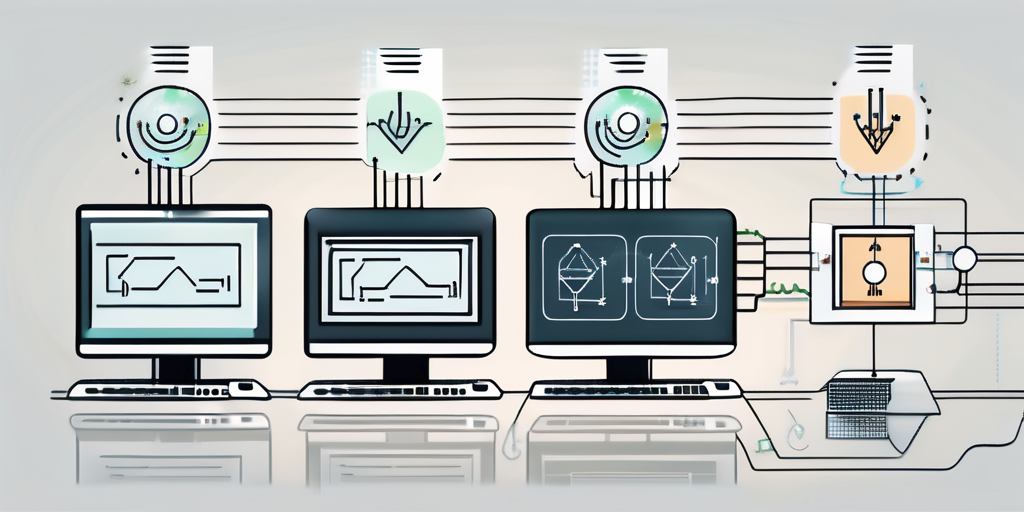The Unspoken Rules Of Coding For Both Novice And Sage Developers
From my experience, clean and readable code is essential for easier maintenance and collaboration. Testing early helps catch issues before they escalate, saving time in the long run. Version control keeps everything organized and makes teamwork seamless.
The unspoken rules of coding for both beginners and experienced developers focus on writing clear and simple code, following team guidelines, testing your work, and balancing speed with quality. These practices help make coding easier and improve teamwork.
What are the unspoken rules of coding that every developer should know?
1. Write Clear and Easy-to-Understand Code:
Use simple and descriptive names for variables and functions. Make sure your code is neatly organized with proper spacing and indentation, so others can easily understand it.
2. Follow Team Coding Guidelines:
Stick to your team’s agreed-upon coding standards. This includes using the same naming conventions and formatting styles. Following these rules makes teamwork easier and prevents confusion.
3. Test Your Code Before Committing:
Always test your code before you commit it. This helps catch bugs early and ensures your code works as expected. Testing prevents issues from affecting the main codebase.
4. Keep It Simple:
Keep your code as simple as possible. Simple code is easier to read, maintain, and debug. Avoid unnecessary complexity and focus on solving the problem efficiently.
5. Write Comments and Document Your Code:
Add short comments explaining why you did something, especially if it’s not obvious. This helps others (and your future self) understand your decisions and makes the code easier to maintain.
6. Use Version Control:
Always use tools like Git to track changes to your code. This helps you keep a history of your work, revert changes if needed, and collaborate smoothly with others.
Why is clean and structured code important for both novice and seasoned developers?
Clean and structured code is important for both novice and seasoned developers because it improves readability, maintainability, and collaboration.

For novice developers, clean code helps them understand and learn best practices, while for seasoned developers, it ensures the code is easier to modify, debug, and scale.
Well-structured code reduces errors, increases efficiency, and helps future developers quickly grasp the logic behind the code.
The Importance (And Simplicity) of Clean and Structured Code:
Clean and structured code is very important because it makes the code easier to read and understand. When code is well-organized, it helps developers quickly figure out what it does, which makes fixing bugs and updating it much easier.
Good code structure also helps prevent mistakes. Clear code is less likely to have errors, and when problems do occur, it’s simpler to find and fix them. Even though writing clean code may take a little extra time at first, it saves a lot of time and effort in the future.
It makes the whole development process smoother and helps everyone involved in the project work better together.
Read: Lookmovie2 – Free Movies Await!
How can novice developers ensure their code is readable and maintainable?
Novice developers can ensure their code is readable and maintainable by using descriptive variable and function names that communicate their purpose. They should break down complex problems into smaller, simpler functions and avoid writing overly complicated code.
Consistent formatting, such as proper indentation and spacing, is essential for clarity. Commenting on the code helps explain complex logic and decisions made during development.
Finally, following coding standards and best practices ensures consistency and easier collaboration with other developers.
What role does testing play in coding for both novice and expert developers?
Testing plays a crucial role in coding for both novice and expert developers by ensuring that the code functions as expected and helps identify and fix bugs early. For novice developers, testing is an essential learning tool that teaches them to spot errors and improve the reliability of their code.
For expert developers, testing is a cornerstone of maintaining high-quality code, ensuring that complex systems run smoothly and new changes do not introduce unforeseen issues.
Regular testing, including unit and integration tests, helps maintain code integrity, reduces debugging time, and builds confidence in the software’s stability.
Why is refactoring considered an important aspect of the coding process?
Refactoring is important because it helps make your code cleaner and easier to understand. Over time, code can become messy and hard to manage, so refactoring improves its structure without changing how it works.
For new developers, it teaches good coding habits, and for experienced developers, it keeps the code easy to update and fix in the future. It also helps make the code more efficient and reduces errors.
How does version control impact the work of novice and experienced developers?

Version control is important for both new and experienced developers. For beginners, it helps keep track of changes and fix mistakes easily. Experienced developers use it to work together with teams, keep a history of changes, and manage different versions of the code.
It also helps in testing new ideas without messing up the main code. Version control makes coding more organized and less risky for everyone.
Two Primary Tasks of the Code:
Machine Execution:
The primary task of code is to instruct the computer on how to perform specific operations. It provides a set of commands or instructions that the machine executes, ensuring that it processes data and performs functions as intended.
Human Readability:
Code must also be written in a way that is understandable and maintainable by developers. Even though the computer executes the code, it is the humans who write, debug, and improve it. Clear, readable code ensures easier collaboration, reduces errors, and simplifies future updates.
What are some common mistakes novices make when coding, and how can they avoid them?
Here are five common mistakes novice developers make, along with tips on how to avoid them:
1. Lack of Code Structure:
Beginners often write disorganized or messy code. To avoid this, ensure consistent indentation, use meaningful variable names, and structure your code into functions or classes for clarity.
2. Skipping Testing:
Novices sometimes skip testing their code, leading to bugs. Make it a habit to write unit tests and manually check your code to ensure it works as expected before committing it.
3. Overcomplicating Solutions:
Beginners may try to create overly complex solutions. Keep your code simple and focus on solving the problem in the most straightforward way possible. Simplicity makes maintenance easier.
4. Neglecting Documentation:
Not documenting code can make it hard to understand later. Always add comments and explanations, especially for complex sections of code, to make it easier for others (and yourself) to follow.
5. Ignoring Version Control:
Skipping version control can lead to losing code or overwriting important changes. Start using version control systems like Git from the beginning to track changes and manage your code effectively.
Read: Black Bear Diner – Your Ultimate Guide!
How does the balance between speed and quality affect coding for both novice and sage developers?
The balance between speed and quality is key to successful coding for both novice and experienced developers. Here’s how it affects them:
1. For Novice Developers:
- Speed vs. Quality: Novices often prioritize speed to finish tasks quickly, which can result in poor-quality code that’s hard to maintain or debug. They might overlook key practices like testing and proper documentation.
- Solution: Novices should focus on learning the basics first, even if it takes longer. By prioritizing quality early on, they will develop better habits, avoid mistakes, and eventually work more efficiently.
2. For Experienced (Sage) Developers:
- Speed vs. Quality: Experienced developers can write high-quality code more quickly because they know best practices and common pitfalls. However, they still take the time to ensure the code is maintainable, clean, and properly tested.
- Solution: Sage developers manage both speed and quality through techniques like code reviews, automated tests, and refactoring to keep code efficient without sacrificing quality.
In both cases, finding the right balance is important. Speed should not compromise quality, and quality should not slow down development. Balancing both helps create maintainable, scalable, and reliable software.
How does effective communication help developers in coding projects?
Effective communication is essential in coding projects because it ensures that all team members understand the project goals, timelines, and technical requirements. For novices, learning to communicate clearly with others fosters collaboration and prevents misunderstandings.
For experienced developers, good communication ensures that complex ideas and solutions are conveyed accurately, which is crucial for problem-solving in larger projects.
Why should both novice and seasoned developers focus on building good documentation?
Good documentation is important because it helps developers, regardless of experience, understand the code’s purpose, how it works, and how to modify it.
Novices benefit by learning to write documentation from the start, while experienced developers rely on documentation to maintain clarity and efficiency, especially when working with a team or when returning to a project after time has passed.
What is the impact of code reviews on coding quality?
Code reviews have a significant impact on coding quality, benefiting both novice and experienced developers in several ways:
1. Improved Code Quality:
Code reviews help identify issues that might have been overlooked, such as bugs, performance inefficiencies, or logical errors. Peer reviews allow developers to catch mistakes early, ensuring higher-quality code.
2. Knowledge Sharing:
Code reviews provide an opportunity for developers to learn from each other. Novices can receive guidance from more experienced developers, and even experienced developers can gain new insights or alternative solutions to problems.
3. Consistency Across the Codebase:
Code reviews ensure that the code follows consistent formatting, naming conventions, and coding standards, leading to a more readable and maintainable codebase.
4. Encourages Best Practices:
During code reviews, developers can suggest improvements in the code, such as refactoring to make it cleaner or recommending better practices for performance, security, and scalability.
5. Reduced Technical Debt:
Regular code reviews help prevent the accumulation of technical debt by addressing small issues before they become bigger problems, ensuring that the codebase remains maintainable over time.
How does leveraging automation enhance coding practices?
Automation plays a crucial role in streamlining the development process by handling repetitive tasks like testing, deployment, and code formatting. This allows developers to focus on more complex problems and tasks that require their expertise.

For novice developers, using automation tools early helps them work more efficiently and avoid repetitive tasks, allowing them to focus on learning core programming skills.
For experienced developers, automation helps maintain consistency, improve quality, and speed up development, especially when working on large projects. This reduces human errors and ensures smoother, faster workflows.
Read: Holdentwodiks – The Game-Changer in Tech Innovation!
FAQs:
How does embracing a growth mindset benefit developers at all levels?
A growth mindset helps developers keep learning and improving. It encourages them to take on challenges and see mistakes as opportunities to grow. This attitude leads to better skills and more successful problem-solving.
What is the significance of balancing personal development and team goals?
Balancing personal growth with team goals ensures that everyone improves while working towards shared objectives. It helps developers grow their skills while supporting the success of the team. This balance makes both individuals and teams more effective.
Why is managing time and priorities crucial for coding success?
Good time management helps developers focus on important tasks first and meet deadlines. It keeps projects on track and prevents stress. Managing priorities ensures that critical issues are addressed before less urgent ones.
How does fostering a positive development culture impact coding outcomes?
A positive culture encourages open communication and collaboration. It helps developers feel motivated and supported, leading to better teamwork. This culture creates a more productive environment and results in higher-quality code.
Why should I test my code before committing?
Testing helps find bugs early and ensures your code works as expected. Both new and experienced developers need to test their code.
Conclusion:
The unspoken rules of coding are all about writing clear, simple, and organized code. Both beginners and experienced developers benefit from testing early, following team guidelines, and communicating well. These practices make coding smoother and improve teamwork, leading to better software.
Read more:






